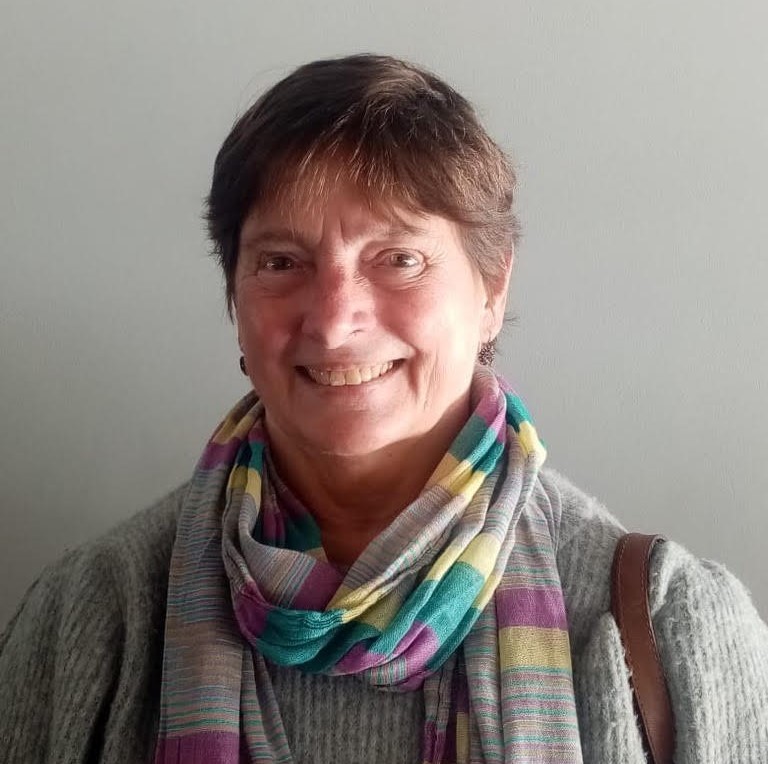
News

Balanced stance on Israel costs editor her job
The editor of the prestigious South African Medical Journal, Dr Bridget Farham, has lost her job for trying to ensure balanced coverage of Israel’s war against Hamas and refusing to publish two articles critical of Israel which made no reference to the 7 October attacks. Even after being made to resign, she stands by her decision.
Now, the South African Jewish Board of Deputies (SAJBD) is calling for her immediate reinstatement, following her ousting by the South African Medical Association (SAMA). “Dr Farham’s forced resignation comes after a torrent of abuse meted out from pro-Palestinian SAMA members, and after facing criticism from SAMA itself,” the SAJBD said on 9 April. “This was in response to a sober editorial, in which she stated that there was “no moral equivalence” between Hamas’s invasion of Israel on 7 October and Israel’s retaliation.
“The unprofessional and unfair treatment of Dr Farham by SAMA is an unacceptable form of bullying that attempts to cancel anyone who dares to express a different view, in spite of academic rigour,” said the SAJBD. “By forcing Dr Farham to resign, SAMA has brought itself into disrepute, and has damaged the proud reputation of an organisation that claims to unify doctors with diverse backgrounds and exists ‘to serve its members’ best interests and needs in all healthcare-related matters’. Not only is it not fulfilling its mandate, it’s behaving in a manner contrary to what we would hope to see from a medical professional body.”
“The main reason I wouldn’t publish the opinion pieces on Gaza and Israel was that the authors refused to mention 7 October, saying that it was simply in the context of 75 years of Israeli oppression,” Farham told the SA Jewish Report. “There was email discussion about this, but no further submissions were offered that met this criteria.”
Farham, who isn’t Jewish, said, “Obviously, I was shocked by the events [of 7 October], but what prompted me to reach out to Jewish friends was the realisation that being attacked in Israel in this way meant that Jewish people would feel threatened again.”
Farham explained her reasoning for not publishing the two pieces in an editorial, titled “Israel, Gaza and moral equivalence”, where she stated, “I’ve been accused of moral cowardice for declining two submissions that are frankly heavily biased towards Palestine, and neither of which mention the events of 7 October 2023. I watched the events of 7 October with complete horror. An Israeli friend, whose family was displaced from the southern Gaza border on that day, let us all know that he was safe. My many Jewish friends and colleagues were in a state of complete shock.
“Reading the news, acts of antisemitism around the globe massively increased immediately after the event, even before Israel launched its ‘self-defence’ barrage of missiles into Gaza,” she wrote. “That alone tells me that antisemitism lies very close to the surface, and the feeling that there’s no longer a safe homeland is completely understandable.”
Her editorial went on to say, “Now, 160 days into the war, I’m once again watching in complete horror as Israel goes, to my mind, far beyond the right to self-defence.” She wrote that she has “mixed feelings about South Africa’s petition to the ICJ [International Court of Justice] accusing Israel of genocide, mainly because it has been remarkably silent about similar events in Sudan and the Democratic Republic of the Congo and not because I feel the case was completely without merit.
“The same person who accused me of moral cowardice for not publishing her submission on the weaponisation of health system destruction also said that she and many others feel that the events of 7 October can be justified by 75 years of Israeli oppression,” wrote Farham. “This is where I cannot agree. Nothing justifies the horror that was meted out to families on the southern Gaza border that day. Just as nothing justifies Israel’s continuing destruction of Gaza and its people. There’s no moral equivalence.”
Farham said she received emails attacking her personally in letters to the editor. “I was quite prepared for responses, but didn’t expect them to be personal attacks on my integrity as an individual. I would have published any formally submitted correspondence, however unpleasant.”
In the end, Farham withdrew the editorial and “issued my own apology for offending people. In retrospect, this was a mistake. I should have stood by the editorial, but the editorial staff were also receiving unpleasant emails, which is why I decided to retract,” she said.
“I was then alerted to emails being sent to the chief executive and board of the South African Medical Association, and meetings taking place about what had happened, and warned by the head of publishing that an official apology was going to be issued by SAMA. As a matter of courtesy, I would have expected the board to contact me, which it didn’t.”
SAMA issued an arbitrary head office public apology without consulting her. Farham then agreed to “a mutual parting of ways” after the SAMA executive cited “reputational damage” as its main concern.
“Fellow medical editors, the South African National Editors Forum [SANEF], and many local academics have sent me messages of support,” Farham says. “Loss of editorial independence is a serious issue in publishing, both academic and otherwise. Do we really want to return to the censorship of the apartheid days?”
This support included a strongly worded letter to SAMA Chairperson Dr Mvuyisi Mzukwa from the editors emeritus of the journal and former University of Cape Town deans of medicine, Professors Daniel Ncayiyana and JP van Niekerk. They said the correct approach would have been to encourage and publish appropriate rebuttals. They told Mzukwa that when equivalent bodies of SAMA in other countries acted against their editors “on quasi political grounds”, it had a detrimental effect on the journal’s owners. They reaffirmed their allegiance to editorial responsibilities as outlined in the press code of conduct by the Press Council of South Africa.
The executive director of SANEF, Reggy Moalusi, said it was “an unfortunate development that the SAMA board had to interfere with Dr Farham’s editorial. We’re always of the view that editors should be allowed to take independent editorial decisions and be allowed to do their work. It’s clear from the editorial that she was taking no sides.
Says Farham, “I’m sad to leave the journal, which is one of the most important journals in Africa, but I’m putting this behind me and moving on. I’m already a consultant scientist for the WHO [World Health Organization] African regional office, and I’ve received interest in my skills from elsewhere.”
“The rise in overt antisemitism following the 7 October attack is to be strongly condemned,” Farham says. “It just shows how close to the surface this remains. I hope the local Jewish community can continue to rise above the hate, as it has done in the past, and continue its interfaith activities.”











Kay Bagon
April 11, 2024 at 3:14 pm
What a brave lady. Thank you you for your unwavering support for Israel.
Wishing you every success in your new ventures
Jessica
April 12, 2024 at 11:02 am
The South African Medical Association can now be written off as nothing more or less than a political tool for the anti-Israel (read: antisemitic) lobby and a laughing stock whose scientific objectivity has been fatally compromised.